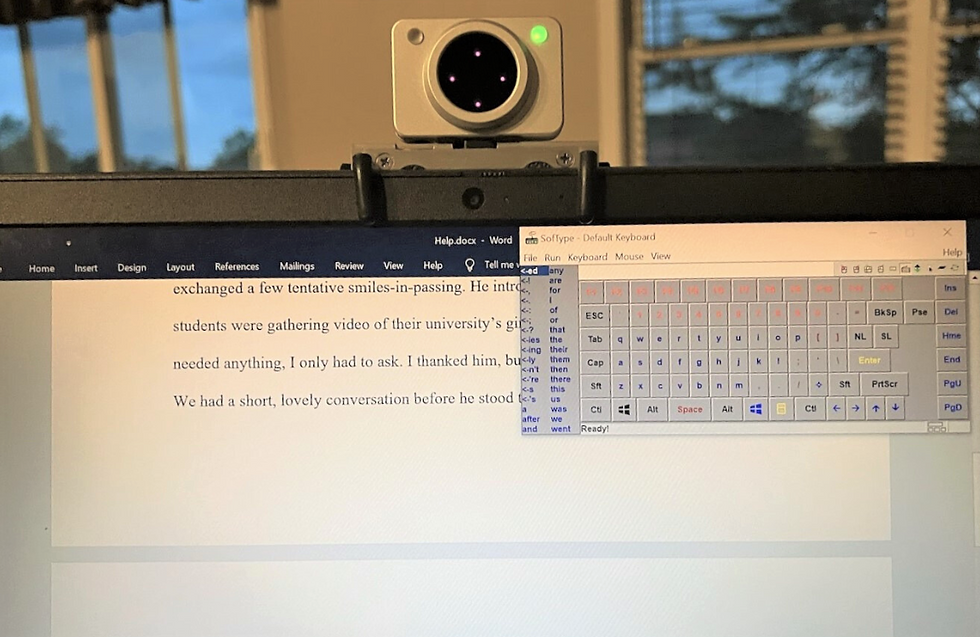Lending a Helping Hand
- juliehistorian12
- Mar 7, 2024
- 2 min read
Updated: May 14, 2024
This column originally ran in the August 2023 Mirror Moms pages.

This past March, I went to Marlborough, MA, for the national college hockey playoffs. When I wasn’t watching games, I’d tuck into an out-of-the-way table in my wheelchair, laptop in front of me, and write.
The HeadMouse camera I use is always propped on top of the screen.

Its dark black circle reads a silver sticker on my glasses (pictured below). The combination lets me control my mouse and operate an on-screen keyboard.

But to anyone wandering by (who can’t see my Word doc), I look like I’m staring at my computer doing absolutely nothing. The slight head movements and the hands resting motionless in my lap tend to double down on that assumption. At times, I’ve glanced away from my writing works-in-progress and made eye contact with someone. I see their wheels turning, and can read their thoughts: Does she need help? Should I offer to do something? Will I upset or offend her?
I’ll answer the last question first: No! Absolutely not! I cannot speak for everyone in my situation, but personally, a genuine offer of help—spoken directly to me—will never offend or upset. I’ll answer the other two thoughts with a perfect example from my March work station.
A professor leading one of the videographer teams approached me after we’d exchanged a few tentative smiles-in-passing. He introduced himself, told me he and his students were gathering video of their university’s girls’ hockey team, and said if I needed anything, I only had to ask. I thanked him, but said I was pretty self-sufficient. We had a short, lovely conversation before he stood to leave. I wished his team good luck and thanked him again. He restated his offer, then left to rejoin his students with a wave and a smile. He did not linger by the table, doubting my answer.
What he didn’t know was I had the ability, either on my computer or cell phone, to text my husband who was working in the building as part of the American College Hockey Association staff.
I’ve used a wheelchair for almost 23 years. My husband and I have our routine down to a science, especially when it comes to working in two different places, or even the simple practice of transferring in and out of a car.
Still, we average two concerned questions a month in a parking lot. Even after the “We’re good, thanks!” answer, sometimes someone doesn’t believe this isn’t our first rodeo, and they hover nearby.
There’s no need to worry if an offer of help is cheerfully denied. Chances are the person in question is more capable of dealing with their situation than it may seem.
I’ve found there is one place where help is always appreciated for wheelchair users, mobility-device users, and parents pushing strollers: opening doors.
Be the teenager who, after glancing backward over his giant hockey bag at me, grabbed the ice rink’s door handle, pulled it wide, and stepped out of the way, leaving a clear, unobstructed entrance to wheel through. 1000 percent appreciated.
To be truly helpful in all situations, the time-honored truth applies: a “no” means “no,” and a “yes” means “yes!”

Comments